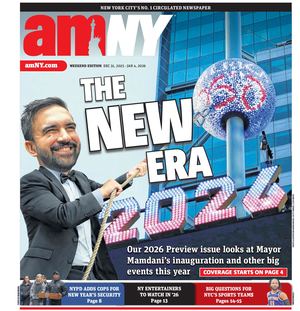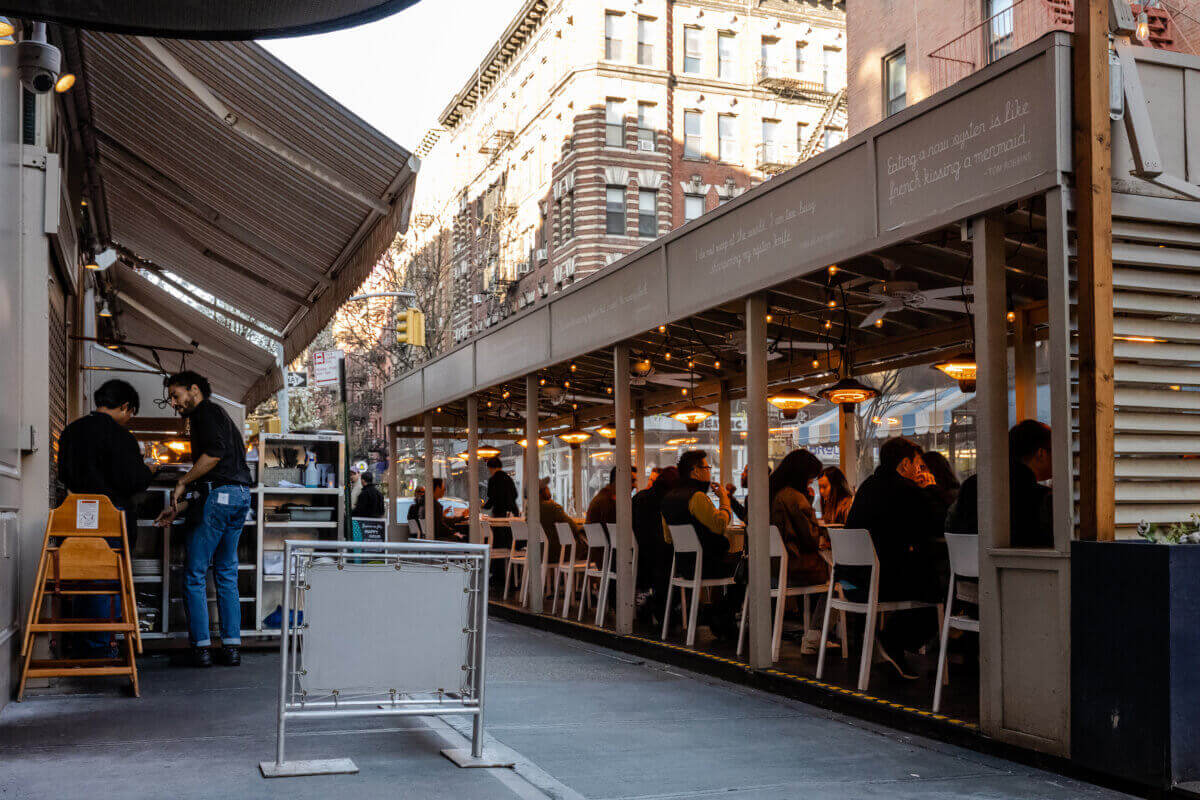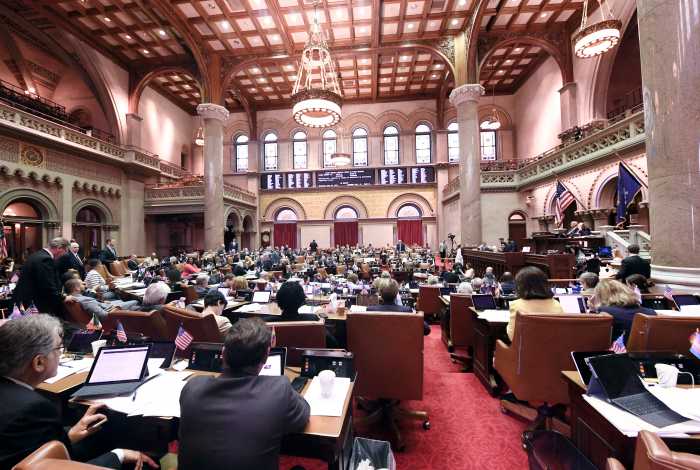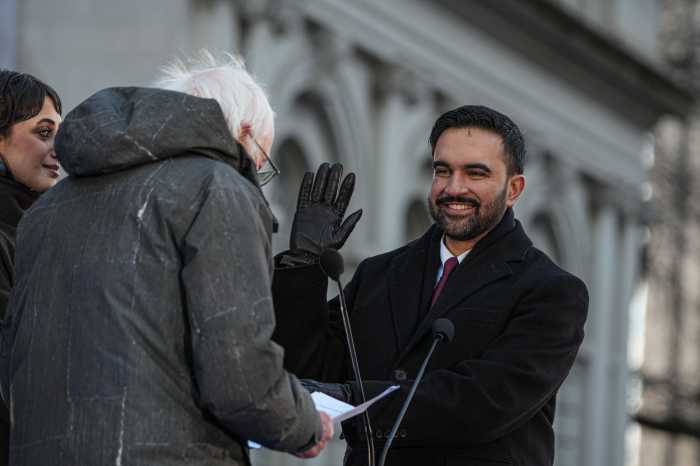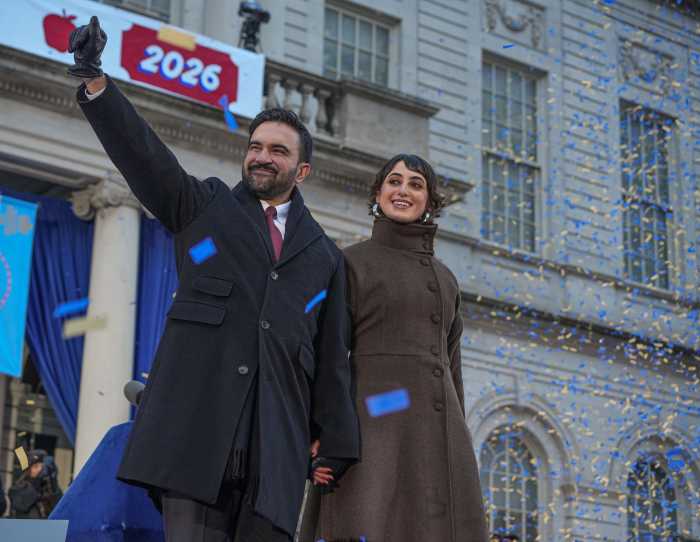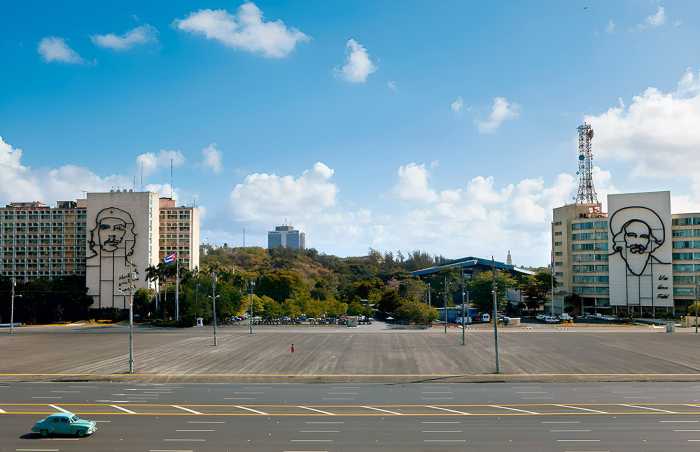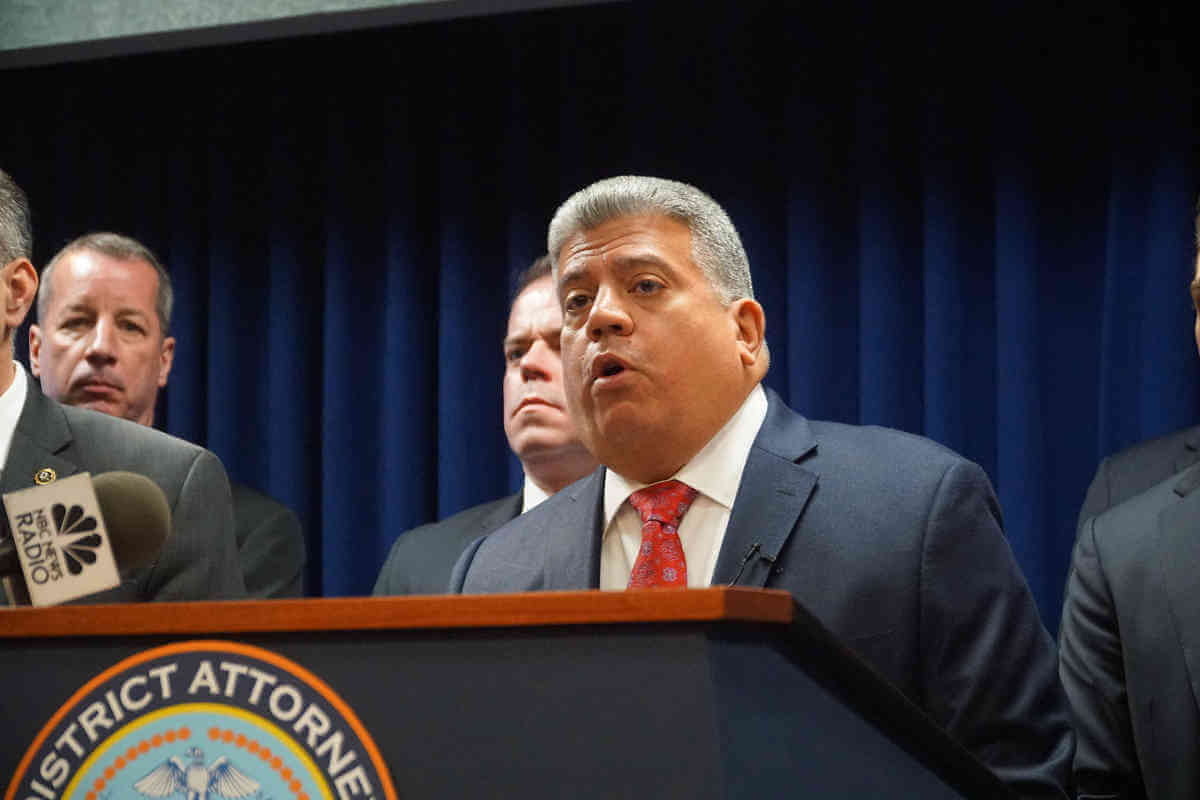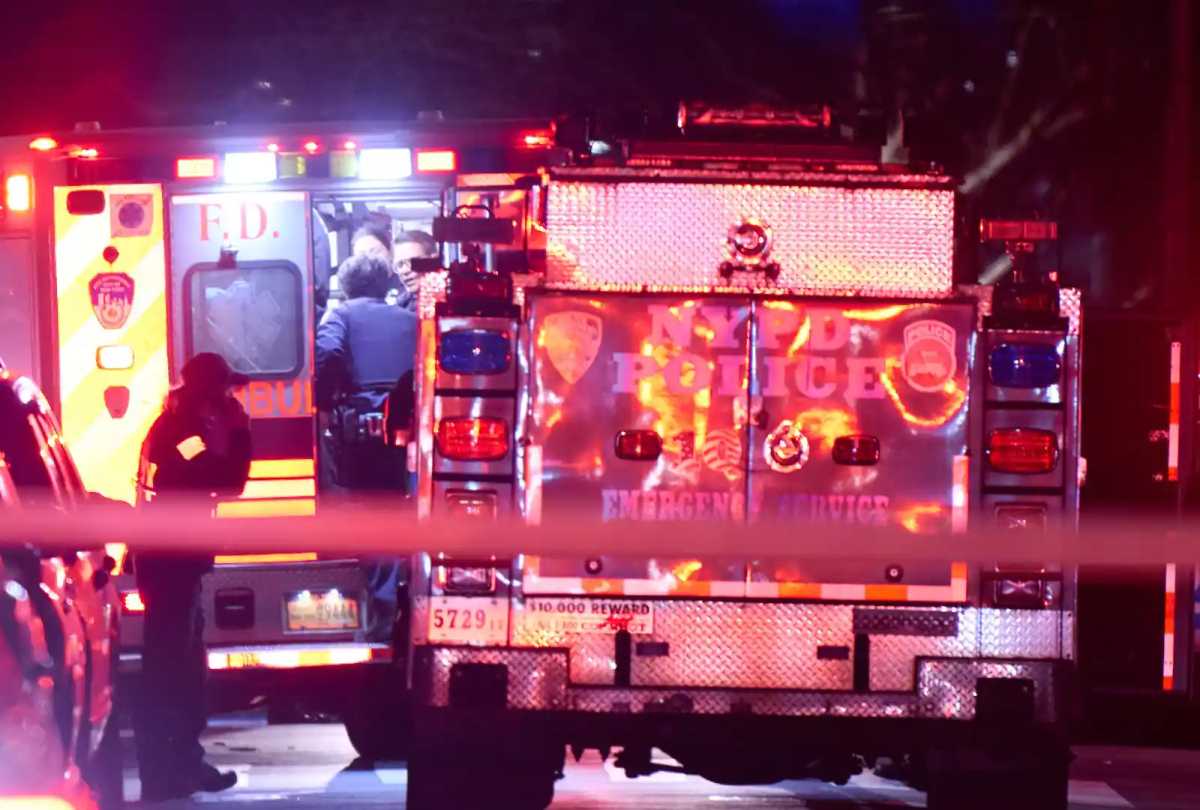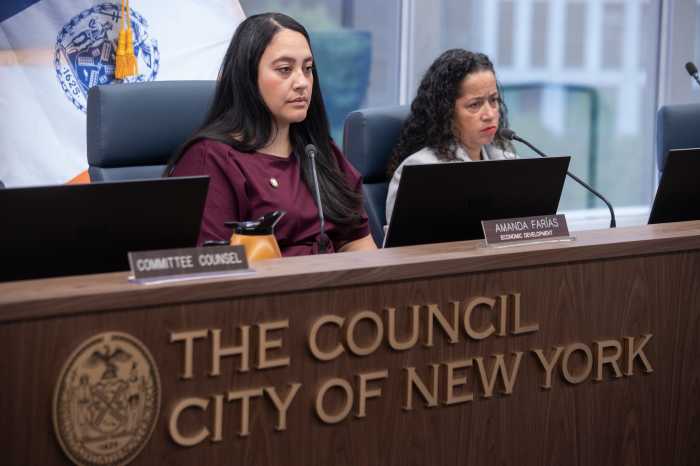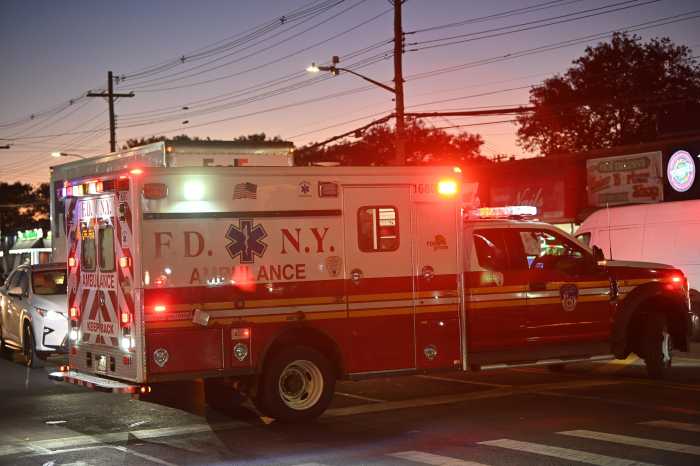Mayor Eric Adams and the City Council speaker reached an agreement Thursday that paves the way for a permanent outdoor dining program.
The pair have agreed to a bill that would permit sidewalk dining all year round, with roadway dining permitted for eight months of the year. The bill would prohibit roadway dining in the colder months from December through March.
The legislation would require restaurants to obtain a license, with the fees based on their location and square footage. They would be permitted to operate from 10 a.m. to midnight.
The bill is an updated version of a piece of legislation that was introduced in February 2022 that has languished in committee. The bill has sat in committee while lawmakers have tried to balance the calls from residents who oppose it—complaining about noise, trash and traffic congestion—to the restaurant industry that has been lobbying hard for it.
“Our administration has been working tirelessly with Speaker [Adrienne] Adams,” the mayor said in a statement. “With this bill, we will create a permanent, year-round outdoor dining program that will support our small businesses, create jobs for New Yorkers, and keep our streets and communities vibrant.”
The latest version of the bill still needs to go before the City Council for a vote.
But many of the controversial details concerning outdoor dining are not covered by the legislation and would be left in the hands of a governing body that would be required to develop the rules and regulations within the broad framework of the law.
Those rules, for instance, would govern the dimensions and materials of the roadway sheds—as well as the sections of the roadway where they could be sited.
The sheds have been a source of controversy, with many abandoned and rat invested. The mayor, while a long-time advocate of outdoor dining, has been active in getting rid of the neglected sheds.
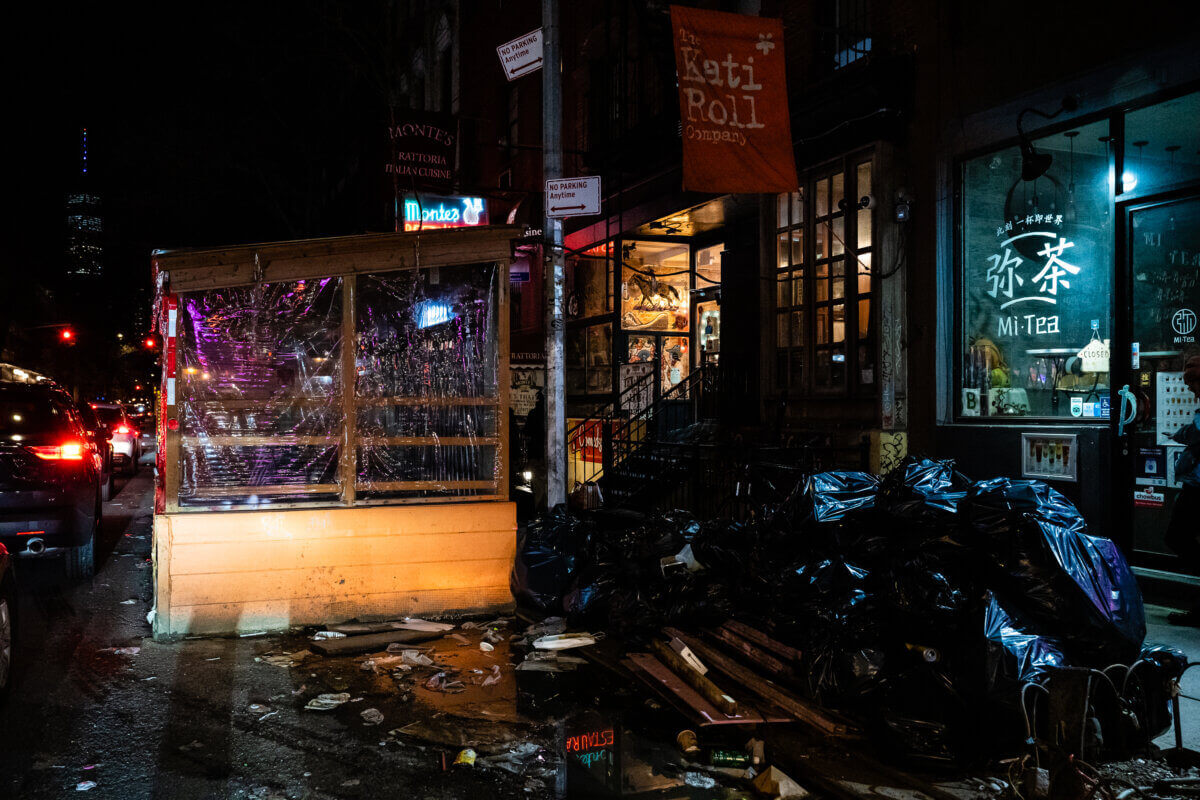
The legislation, however, would provide a vast number of restaurants that were unable to do so prior to the pandemic with the opportunity to offer sidewalk/roadway dining.
Before the pandemic, only about 1,000 restaurants across the five boroughs had permits to operate a sidewalk café, and approximately 70% of them were in Manhattan. Most neighborhoods were not zoned for it and the fees were high, which limited it largely to high-end neighborhoods.
Meanwhile, roadway dining was not permitted anywhere.
However, in June 2020, in the midst of the pandemic, the de Blasio administration introduced the Open Restaurants initiative that lifted the zoning requirements—and the onerous approval process– and allowed for the use for the first time of roadway dining sheds.
Today more than 12,000 cafes, bars and restaurants use sidewalk and roadway space via the Open Restaurants program. More than half are in the outer boroughs.
The DOT was put in charge of the Open Restaurants program and under the legislation will oversee it once it becomes permanent. The NYC Department of Consumer and Worker Protection was in charge of outdoor dining prior to the pandemic.
Currently, the program is only being kept in place via the mayor signing executive orders based on the emergency powers stemming from the COVID-19 epidemic. Critics argue that the pandemic is over, and that the mayor is abusing his power by keeping the program in place.
The council has already taken some steps to permit outdoor dining. It passed a zoning bill in February 2022 that will allow outdoor dining to take place in most commercial areas across New York City. The bill will only be in effect once the outdoor dining bill becomes law.
The legislation agreed to by the mayor and speaker aims to reduce the fees for restaurant operators to participate in the outdoor dining program.
Prior to the COVID-19 program, restaurants had to pay either $30 or $40 per square foot for sidewalk dining space depending on their location.
The agreement that the mayor and the speaker have reached would lower those fees significantly with four pricing tiers based on location.
Approximately 80 percent of restaurants would be classified as being in the lowest tier and would be charged $5 per square foot for roadway cafes and $6 per square foot for sidewalk space.
The highest tier would be in the heart of Manhattan and would be $25 per square foot for roadway cafes and $31 per square foot for sidewalk cafes.
Speaker Adams said the legislation focuses on affordability for small restaurant operators while balancing the concerns of neighboring residents.
“We have been centering affordability for our prized small businesses in these efforts, while ensuring that a permanent outdoor dining program for our city strikes the right balance for restaurants, neighborhoods, and all New Yorkers,” Speaker Adams said in a statement.
The agreement won praise from the New York Hospitality Alliance, an advocacy group that has been calling for a permanent program.
“We’re thrilled the Mayor and City Council have agreed to terms for a historic permanent outdoor dining program,” the organization said in a statement. “We look forward to working through the additional details of the program with the city.”
Read more: NYCFC Announces New Stadium Plans in Queens
